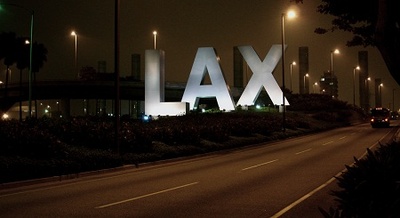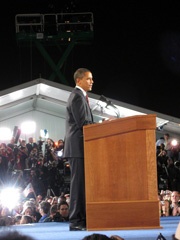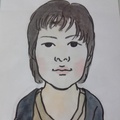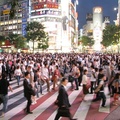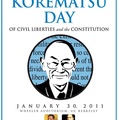There is a clear difference between Japanese Americans and the Japanese in America. I myself was not aware of this difference at first. At the age of sixteen, I moved to the US with my family. Being an adolescent was difficult enough, yet I had to say goodbye to every piece of what seemed like a perfectly peaceful high school life. For some people, moving to America is a once-in-a-lifetime opportunity. But for me, it was the worst nightmare come true.
My very first contact with Asian Americans occurred in high school. The familiar Asian look on their faces somehow made me feel like I had found my second home in a foreign country; however, it didn’t take me long to realize that they were totally different on the inside.
Because of my lack of English proficiency, I was placed in a beginner English class with my sister (who is two years younger than me). What I learned in four years of second language education in Japan was almost useless there. For starters, I didn’t even know how to greet people.
How are you?
I’m fine, thank you. And you?
Fine, thank you.
This was the “model” dialogue of greeting I learned at school. No one greeted me that way.
In my ELD (English Language Development) class, I was relieved to see many other students, second language speakers like me, who struggled to learn English and assimilate; but at the same time our class was extremely isolated, and it was impossible for me to experience an American high school life I had imagined.
Most of the time I hung out with my Japanese friends during snack breaks or lunch time. We talked about Japanese celebrities, movies, and books over Japanese snacks. In Southern California, I could live without ever speaking English at all. Japanese restaurants, supermarkets, doctors, dentists, bookstores, and even karaoke bars were easily accessible everywhere, not to mention I had Internet to watch Japanese TV shows and dramas anytime I wanted.
Spending seven hours a day with classmates who were at the age of my sister was awkward and uncomfortable in itself, but what irritated me the most was that I saw countless students on campus who looked exactly like me on the outside but acted and talked like they were from outer space. Until that point, I had never met or seen English-speaking people who looked like me—with the exception of Utada Hikaru, but I think her ability to speak English fluently was one of the main reasons why she caught so much attention in the first place, and I don’t mean to be sarcastic here. Did I want to become one of them? Of course I did. But did I?
The problem wasn’t so much about differentiating myself from the Japanese American community because to me, it didn’t make much difference if they were of Japanese descent, Chinese descent, or Korean descent. The distinction between us was much more simple—whether they spoke English as a first language. It wasn’t until I learned the language myself when I finally, slowly began to see the clear line that separated me from them. Japanese Americans are “American” to begin with, whereas I, a Japanese citizen living in the US did not have that label on me. Given that, the only thing I needed to become one of them was to be part of America—which turned out to be much more difficult than learning English.
There were two days—or two nights in particular—when confronting this difference became an almost heartbreaking yet unforgettable experience in my life: those were the 2008 and 2012 presidential elections.
In 2008, I was still in college and I remember telling my neighbors that I felt left out being a non-citizen in the country where people were just about to witness one of the most historic events of a lifetime. One Caucasian neighbor whom I ran into a few months before the election didn’t seem to have much interest in the event anyway, except that she openly agreed with me on my statement that the difference between an American citizen and a permanent resident still in large part made the latter feel like an alien within, despite her fully legalized right to claim her residency and work in the land of opportunity—yes, what made me feel like an outcast during the 2008 election was the very fact that I did not have a right to vote.
Still, I did not turn away from what this benevolent country could offer me, with an almost revolutionary change in the faces of the all-too-familiar US presidents who all looked, in one way or another, like a typical elderly manager you run into, when typing “senior manager” in the search box of istockphoto.com.
The night of the election was indeed historic, as many voters expressed their emotion rather explicitly yet there was one thing that bothered me, despite the night being one pivotal moment in American history, perhaps more significant than the most recent July 4th fireworks.
It was a question asked by a number of reporters after the election, when interviewing their “fellow” Americans who just happened to share the same descent with the newly elected president. Did you ever think that you would see an African American president in your lifetime? How do you feel to have an African American president? Of course, I can only assume that these reporters kept asking the same question only because they themselves could not believe, and thus almost desperately had to force someone to say “No, I never thought I would see this in my lifetime.”
Since I did not cast my ballot, I was able to see the entire scene from a third-person perspective and analyze what their questions really meant in the election. Obama’s racial background is determined by a drop of his “black” blood, a rather redundant phrase used from the time of slavery and there is no doubt that the 2008 election was closely linked to the idea of reassuring one of America’s greatest gifts, the ability to self-recuperate its own wrongdoing in the past.
In 2012, however, Obama was no longer a new born hero whose racial identity stood out, before anything else, in appealing to the public. Still it does not change the fact that he is the first African-American to serve his second term in White House; if his victory deprived him of his racial advantage this time, a kind of advantage that the rebels of any affirmative action would claim, it certainly shows the degree to which the American perception of race has evolved over the past four years.
I was back in Japan and did not get to see the live coverage of the election on TV; yet I managed to follow the aftermath of the election on the radio and listen to Obama’s victory speech live. The great applause of the audience proved his popularity which made the last three minutes of his speech almost inaudible.
What was once meant to be a satire of American public which is based on the statement that America indeed is the best nation in the world repeatedly appeared in Obama’s speech not as a self-deprecating joke as some comedians might do, but as a serious remark on the reassurance of his appeal to the mass.
America is divided into so many different parts, despite what Obama says, but that’s what makes the country united at the same time. If we dig deeper into difference, what comes out at the end of a tunnel is similarity. The shapeless America makes its people raise their voice and keep fighting for whatever they believe is right and just. If Japan taught me there is voice in silence, America taught me that voice is to be delivered from one person to another. I still have not seen all of America and maybe never will, but that’s what attracts me, something that tickles my curiosity to seek the ultimate fate of the country.
© 2013 Mina Otsuka


